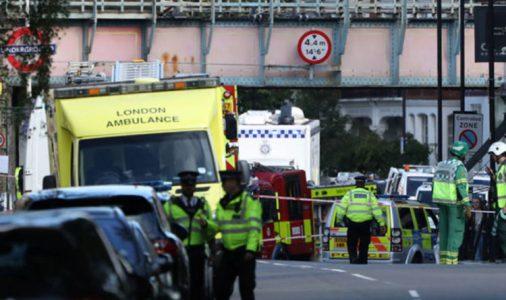
Tube bomb-attack in London: The need to disrupt and destroy ISIS both at home and abroad
The attack on Parsons Green tube station in London on the 15th September 2017 with a explosive device detonated on a tube carriage is a reminder that terrorism presents a clear and present danger to the interests of UK national security.
Furthermore, the UK terror threat has increased from severe to “critical” meaning that another terrorist attack is imminent. ISIS has claimed responsibility for the attack.
Further investigation by the police and security force will yield the full extent of ISIS links with this attack. However, there has been a trend this year of terrorist attacks that have either been inspired by, or linked to, ISIS on UK soil in Manchester and London. This has been the most dangerous year in terms of the amount of terrorist attacks committed in recent history.
This year, we have witnessed 5,000 British Army troops deployed on the streets of UK cities under Operation Temperer after the devastating attacks in Manchester earlier this year. Prime Minister Theresa May chaired a COBRA meeting to discuss this latest terrorist attack which is generally held in one of the cabinet offices in London. These meetings are tasked as part of crisis coordination with heads of the police, military and senior ministers.
In addition, we are likely to see this operational use of troops used in the same way again in light of the attack on the London tube network on the 15th September 2017 to protect civic centres and also free up police forces and personnel to use in other duties. However, for a proper counter-terrorism response, there needs to be an overarching strategy which connects the domestic and international arenas of counter-terrorism together into one cohesive strategy.
This means locating the threats from ISIS bases in the Middle East, and destroy their zone of operations while also increasing domestic security at home, interdicting terror financial networking, recruiting and bomb making. In addition, the police along with security forces need to address the causes of extremism, and tackle the extremist ideology that ISIS propagates. Air power alone is not sufficient in tackling ISIS, and more needs to be done both militarily and in terms of expanding operations.
National Security experts such as Fred Kaplan have argued that air power alone cannot win this conflict, and advocated use of local ground forces to properly destroy ISIS militarily. In addition, military commanders and political leaders both in the UK and elsewhere should investigate the authorising of special forces in Iraq and Syria in order to dismantle and destroy ISIS.
These special forces would be tasked with taking out key ISIS commanders, as well as disrupting communications, supply lines, financing, and also bases. We already know that US Special forces are in operation in Syria. This should be expanded to its fullest potential and the UK to work alongside its allies.
On a wider geopolitical level the latest campaign against ISIS is part of this generational struggle of a globalised war on Jihadist terrorism. Failure to properly combat ISIS, will mean that the balance of power will inevitably shift towards the terrorists who are well armed, well equipped and well financed. Although they are in retreat, this has emboldened them to carry out attacks in European countries and go on the offensive. Therefore, although ISIS has lost territory in both Iraq and Syria, it still has the capability of launching terror attacks and recruiting followers both at home and abroad. Its very existence provides a threat to UK national security
The Coalition’s counterinsurgency against ISIS must combine air with ground power, with the political aim of strengthening the Iraqi government and providing both military and development aid. Air attacks must be expanded in Syria and be surgical with the inclusion of ‘special forces’ used when necessary to eliminate key ISIS commanders. A ‘kill or capture’ policy should be introduced such as what was found in the Afghanistan strategy was under Barack Obama with the increased use of Drones, but in this case with the use of Special Forces as well.
When the world is becoming more dangerous, and we are entering a new period of threat from terrorism, the UK must be prepared to deploy its forces accordingly and eradicate the threat from terrorism. Britain should be at the forefront of this global fight against terror and should encourage others to take their part.
Source: UK Defence Journal





